The Second Vatican Council (aka Vatican II) was convened in 1962 by Pope St. John XXIII and lasted through 1965. It gathered all the bishops from around the world to produce 16 wonderful texts.
However, fifty years after its conclusion there’s still debate about what Vatican II taught and how the Council was implemented. In this episode, Fr. Blake and Brandon discuss what you need to know about the Council: why Vatican II was needed, a simple timeline, the key terms and people, what happened after the Council, the major controversies, and why the Council remains important today. They close with several recommended books on Vatican II to go deeper.
Note: At 28:52 , Fr. Blake refers to the “Council of the Magisteriums” but he meant to say “Council of the theologians.”
Links
- Documents of Vatican II – start with 4 constitutions
- The Irony of Modern Catholic History by George Weigel
- What Happened at Vatican II by John O’Malley
- Conciliar Octet: A Concise Commentary on the Eight Key Texts of the Second Vatican Council by Fr. Aidan Nichols, OP
- The Council in Question: A Dialogue with Catholic Traditionalism by Fr. Aidan Nichols, OP and Moyra Doorly
- The Disputed Teachings of Vatican II by Thomas Guarino
- The Reception of Vatican II edited by Matthew Lamb and Matthew Levering
- Vatican II: Renewal Within Tradition edited by Matthew Lamb and Matthew Levering
- The Spirit of the Liturgy by Pope Benedict XVI
- “Reclaiming the Second Vatican Council” by Fr. Blake Britton (article)
- Bishop Barron on His Theological Path (video)
- Vatican II FAQs (Word on Fire)
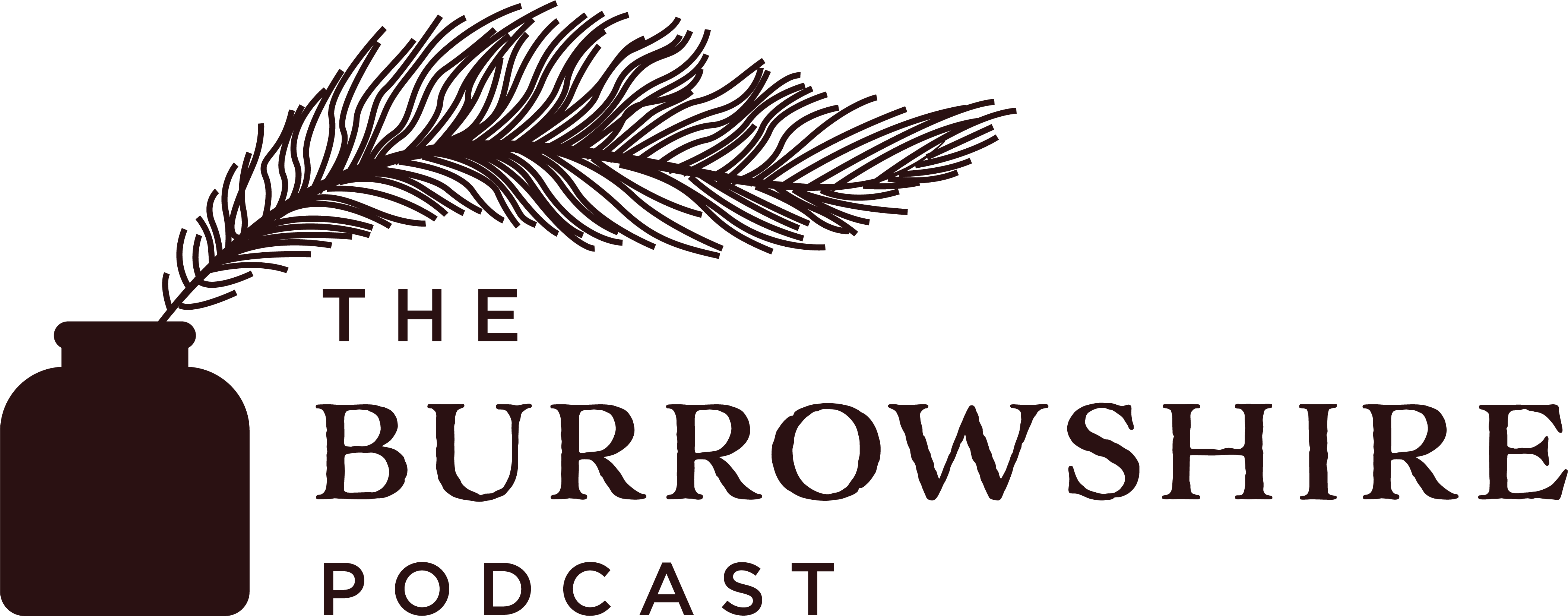
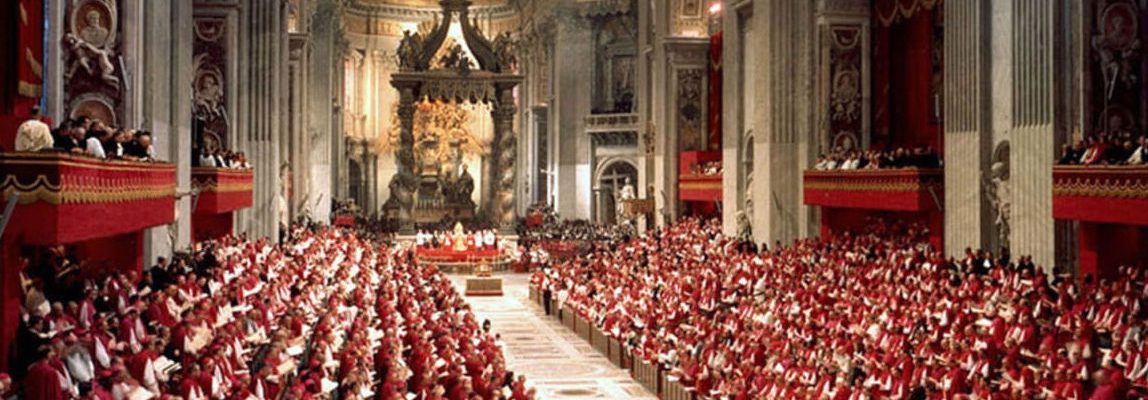

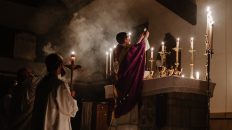
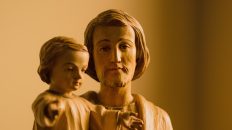
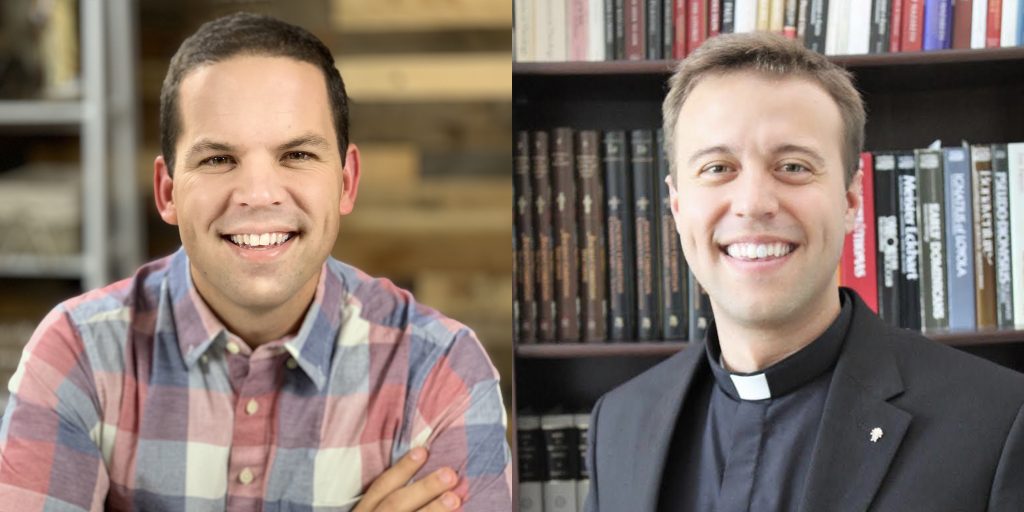

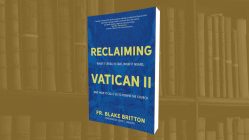
I just wanted to say I really enjoyed this episode. You’ve definitely convinced me to finally sit down and read the council documents.
I also wanted to mention I started cracking up when Brandon mentioned it was time to start wrapping up the episode and I saw it was only half over lol.
HAHAHA! Yes. That usually happens even when Brandon and I hang-out. Usually when either of us says “let’s wrap this up” that is code for, “Let’s start the second part of our conversation”. lol!
Is there some way to view the first few in this series of podcasts? I don’t want to leave out any information that might be of use.
Right here! https://burrowshirepodcast.com/episodes/
I appreciate the discussion on Vat 2. I realise now, that perhaps the confusion and abuses that exist so abundantly can not be blamed on Vat 2, but more be blamed on an ignoring or a reinventing of these documents.
However, how do we explain the drastic falling away from the Church in my lifetime, I’m 67. Pre and post Vat 2 Catholic. How do we account for the liturgical abuses taking place on a daily basis at out Sunday Masses, particularly receiving Holy Communion in the hand , and being refused communion kneeling, and on the tongue…….
I could go on an on till my heart breaks…..
By all means, defend the Council, but what are we going to do with 70% Catholics who no longer believe in the Real Presence…… so much has been lost and gone, and it began to erode round about 1962, …….. many many changes, no improvements……..
I’m not blaming Vat 2. But I sure haven’t seen a flowering of the Church in my lifetime, quite the opposite actually.
John, I too appreciated the discussion on Vatican II. A much needed clarification. It seems to me that beliefs about Vatican II are similar to some Non-Catholics criticisms of Catholicism – they are commenting on what they think it is rather than the truth of what it is. I am a new convert, and was baptised into the Church in 2014 so I don’t have your experience or memories of pre-Vatican II, but I believe in the Holy Spirit’s presence and work within it. I was born in 1970 so missed the crazy years of the 60s and was a child in the 70s so can only comment on what I’ve heard so I may be off-base here, but those decades seem to be full of free love, drugs, and a lot of people living permissive lifestyles. That can’t be blamed on Vatican II but on the times and -I’m imagining – on some hefty work by the enemy. So we don’t know what worldly distractions and temptations drew people away from the Church. Increasingly we have a world that is becoming more and more secular – but there is hope. If someone like me can be drawn to the Church after a lifetime of non-Christian living, and I now live a life that is Christ-centred and with a desire to be ever more shaped to God’s will, then there is hope. I still need to read the Vatican II documents and only have a small understanding of the changes but I believe that the council, in their wisdom and with the promptings of the Holy Spirit, made changes that were needed for our times. Change or different thinking can make people walk away in fear or disgust from misunderstanding. Remember John 6:52-59 how people argued about Jesus’ words about eating his flesh and drinking His blood? People walked away from Him and he allowed them to go, honouring their freewill. That seems to be what is happening here. People may walk away from teachings and changes but, I believe, the truth and goodness will shine brightly and bring people back.
This was a thoroughly enjoyable elucidation of the Second Vatican Council. The Council was an elemental and integral part of my Catholic life. St. Pope John XXIII, elected in 1959, declared the need for an ecumenical council about 100 years after the First Vatican Council had been called for the Church. One year later in 1960, John F. Kennedy was elected as the first Catholic president of the United States. As a middle-school age Catholic student, the times felt exciting. We students mistakenly thought ecumenism was about converting non-Catholics to our faith, and since a Catholic was elected president, perhaps the majority of American Protestants would become Catholic. The reality was far different and much more complicated. I do think that year after year of reading wildly divergent news reports on the Council, many of us teenage Catholics became more and more confused. Then, we had that chaotic implementation of changes within the liturgy that were sometimes exciting and at other times confusing and almost repulsive. Thank you for clarifying many points about the Council and the teachings of the Church and of the importance it has not only in the recent history of our faith, religion, and Church, but in our present-day problem of so many members leaving the holy embrace of the Church due to the influence of the secularism, self-centeredness, and cultural immorality of our world. I have read the documents previously, but I will read them anew with the ideas the two of you have discussed in the back of my mind. God bless you and continue doing God’s will!
Excellent episode! Thank you.
I appreciate this discussion. I wish I could agree with the you guys regarding great fruit. As I read through the documents I mostly see the effects of the para council. For example the two reasons for calling the council at the beginning of the pod cast 1st I have seen so much greater love mother Church in TLM communities. The 2nd I see the Church as being silenced in the world and even to so many parishioners. Beyond the para councils many traditional Catholics see some problems with the docs themselves. My personally biggest problem is with its comments on other religions especially towards buddhism. I am not strictly traditional but they have persuasive arguments and more universal reverence and show love to our Church. Thank you for what you do.
Brandon & Fr. Blake- absolutely wonderful breakdown of the Vatican II documents. I am hooked on the Burrowshire Podcast. Thank you
Thank you, Dear Brandon and Fr. Blake! I would wholeheartedly agree with you that what most people who believe that Vatican II destroyed the Church are mistakenly reacting to the liturgical abuses that followed thereafter, or, as you termed it, the “para council.” My comment/question, however, is this: Why, for heaven’s sake, were not these liturgical abuses addressed by the Bishops of the respective dioceses in which these abuses occurred? It seems that they let so much slide in this regard. For example, the “clown” Masses, as you gave as an example ought to have been shut down, yet they were allowed to proliferate. And the abuses continue! I have been present at Mass where the priest allowed certain abuses as if he had a perfect right to do whatever he thought was acceptable, for example, abdicating his role as the homilist and permitting a female lay staff member to give the Sunday homily while he sat in his chair. These practices are confusing to the laity at the very least; at best, they are a source of the weakening of faith. Thank you again for providing this synopsis. Truly, it was not enough time to speak about everything–this is such a wide topic that one podcast could never do it justice. I look forward to, perhaps, considering a series of teachings on Vatican II. God bless you both, always! And God bless your new baby girl Maria! Recently, we welcomed my fourth grandchild, Patrick Joseph, and he was Baptized on Sunday! We are so blessed!
I took a semester long graduate course on Vatican II about 15 years ago. You gave me so much to chew on and pray about in an hour and 20 minutes what a three months long graduate course didn’t do for me. In fairness to the smart professor who taught me, perhaps, I’d forgotten most of what I learned then. Exaggeration aside, you guys are a gift and a treasure to a suffering church. Obviously, I’m much older than both of you, and your podcast makes me want to learn my Catholic faith anew and indepth. God bless you! Amanuel
Simply fascinating… feeling grateful also for all the references you shared (e.g. articles, videos, books). Thank you for your encouragement to deepen our understanding and appreciation of Vatican II. May God bless you!
This podcast has given me much to read and think about as i have recently been challenged by friends who are SSPX extremists which has challenged me on my beliefs. Thank you for this podcast.
I did not find the link you mentioned re Pope Paul VI on Vatican II above but found it and am including it for anyone else who may be interested:
https://www.catholicculture.org/commentary/pope-paul-vi-on-vatican-ii/?repos=6&subrepos=0&searchid=2029925
Thank you both for your very enthusiastic and timely podcast. Could you provide us with references that delve deeper into the interpretation of Vatican II as a “mystagogical” council?
Thank you!
This podcast is just SO helpful. Thank you! I have had many questions/doubts about V2 for a long time. There are people in my life who are a part to the SSPX and created a lot of confusion for me about the post conciliar church. I have tried to find out more information but have yet to feel confident. During the podcast, I could feel the weight of confusion being lifted. I am excited now and will try to follow your recommendations. Please pray for me!
Vatican II and its subsequent reforms have given us a new religion, a religion which is substantially different from the Roman Catholic Faith founded by Christ.
The reformers have substantially altered the three main components of religion: doctrine, worship, and discipline. The result is that the reformers are promoting a religion of ecumenism in place of the Roman Catholic religion, which has always taught that it alone is the one, true Faith, and that all other religions are false. The Vatican II religion teaches doctrines which have been condemned by the Church in the past. It has instituted rites and disciplines which are Protestant in nature.
As a result, the religion which Catholics find in their local parishes and schools, although in name Catholic, is a new, non-Catholic religion already condemned by the Catholic Church.
As an absolutely necessary conclusion, it is impossible that the Vatican II “popes” be true Catholic popes because it is impossible that the authority of the Roman Catholic Church, which is Christ’s authority, give to the universal Church false doctrines, false liturgical practices, and false disciplines.
Thanks for the comment, but I’m afraid nearly every statement in this comment is false.
In order to solve your dilemma, you should begin by considering what drove many people out of their Vatican II parishes in the first place. In most cases, it was either contradiction of established Catholic teaching or irreverence in worship. In other words, they instantly recognized some element of the new religion to be either a doctrinal error or an evil.
And we hardly thought that their objections concerned mere changes in minutiae. The new doctrines, rather, struck them as changes in substance — compromises, betrayals, or direct contradictions of immemorial Catholic teaching. Or they came to regard the new system of worship as evil — irreverent, a dishonor to the Blessed Sacrament, repugnant to Catholic doctrine, or utterly destructive to the faith of millions of souls. Weighty reasons like these — and not mere trifles — were what moved them to resist and reject the changes.
Once you have arrived at this point and recognized (as you do and must) that some official pronouncement or law emanating from post-Vatican II hierarchy contains error or evil, you are, in fact, well on the way to resolving the seemingly thorny issue of authority.
What specifically are you talking about that VII did that substantially altered the religion? A statement that VII changed things without specifics – based on the documents, not interpretations – is really meaningless to the discussion. If you believe there was a specific change contrary to Catholic teaching – what is it?
Thank you both! To be honest, I do see the fruits of Vatican II, even if they’re not apparent. Yes, people are leaving the Church in droves. But people who are still here, especially the Millennials, are teaching their children in the faith and catechising them better than even our parents or grandparents were. That in and of itself will bear fruit. I think we see the world as it is and we fear the state of things, but really what have we to fear? Can’t the Lord work miracles when all we have to give Him are five loaves and two fish? Did He not start with 12 Apostles, one of whom betrayed Him? And before that, a only a Mother who did the will of God perfectly (and continues to do so)? So thank you, Fr. Blake and Brandon. I feel really excited about the prospect of the future and the role that has been entrusted to our generation. Besides, in times of calamity is when the Lord raises up His saints!
Congratulations also on the birth of your baby girl! What a blessing for all of you and all of us in the Church!
With all due respect AD, I humbly but totally disagree with you regarding the remnant Catholics catechising their children better than their predecessors…..
unless……. you are referring to those traditional parents, who either home school or ensure there children are taught by traditional teachers.
I recently lamented to a priest how sad I am to have three adult children, none of whom practice their faith……. His response…. “ Did you send them to a Catholic school”
The answer is Yes…. both primary and secondary……He said……. there’s your problem…. which, of course, I was already well aware. The only visible and active group who are catechising traditional Catholic teaching is those traditional parents who have walked away from the run of the mill Catholic schools.
It’s these kids you’ll see at Sunday Mass.
How many parish schools are not represented by their students at Mass.
Most of them. Somethins wrong !!
God bless ye both.
This was the spiritual food I have needed for a while now, and I can’t tell you how refreshed I feel after listening to the podcast.
My wife and I just sponsored a couple into the Church, and even before knowing what you said I had already instructed them by saying they needed to read the Vatican II documents and that it was their responsibility as new Catholics to do so.
Of course, this adds fuel to my fire! Somewhere one of the Vatican II documents warns against overzealousness, but I might be pushing the bounds a bit…I think by addressing the liturgy we could resolve a lot of conflict. But how do we address it as everyday Catholics? Who do we talk to? How do we make it better? Is prayer our main weapon?
I will be referencing your podcast and making adjustments to a recent blog post based on this episode.
[…] should we be surprised that people would flock to that? *After listening to a recent episode of the Burrowshire Podcast, I would even go so far as to say that the Novus Ordo Missae can be done incredibly […]
Great job of balanced, enthusiastic, and Spirit filled commentary with great insights eg: we are people of “both/and” and especially encouragement to read the main documents. Just loaded my “What happened at Vatican II” on my Kindle, sorry guys, I like being able to take my reading with me. Am interested to see the author’s comments since I read last year Yves Congar’s 900 pages of “My Journal of the Council” and before that his “True and False Reform in the Church.” My heart goes out to the poor individual who feels that the Council gave birth to a new Church in a recent post when Fr. Blake couldn’t have been clearer witnessing to the Spirit’s presence before, during, and after which clearly enlivens has priesthood and his love for the Mystical Body and the work of leading souls to Christ. Please keep up the beautiful work both of you do.
Hi Brandon and Fr. Blake,
Thank you for doing this podcast and this episode in particular. While I agree that where much of the disagreement around Vatican II has mostly to do with the implementation, I do have a question. Since the implementation as we have seen it has had many problems, what would a proper implementation look like? What would have changed and/or remained the same? While this probably requires a long answer, do you have any resources that would help, or maybe a future podcast to discuss it? I’m not sure if the books you recommended address this, or maybe I missed it. Thank you both, I’m really enjoying the podcast!
Thank you!! Having read some of the documents while in an educational setting, I now realize that I need to read them on another level. As Fr Blake said, “To make them your own.” Thank you again!! No matter how long or short, every podcast so far has been so relevant to what we as Catholics need to hear and understand! May God bless you both!!
Father Blake,
I am looking forward to your forthcoming book.
You commented that Vatican II was a “mystagogical” council. I love mystagogy! (If only more religious and laypersons were led toward deeply living the sacred mysteries. Especially reclaiming the awareness of the Church as Mystici Corporis, the Mystical Body of Christ).
However, I am unfamiliar with any sources that describe an interpretation of Vatican II as “mystagogical”… Could you please provide me with your references? Thank you!
I researched the topic while waiting your response to my earlier request. I was surprised to learn Benedict XVI seems to suggest otherwise in his explanation why the Council Fathers preferred the phrase “People of God” (Paragraphs 13-15 in his address to the parish priests and the clergy of Rome on Thursday, February 14, 2013).
Pope Benedict XVI continues his address on paragraph 16 that “communion” is the “central concept“ of the Council (likely referencing the 20 year anniversary of the 1985 Synod of Bishops).
On another note, St. Paul VI wrote in 1969 that the “universal call to holiness” is the “most characteristic and ultimate purpose of the teachings of the Council”.
If one marries these two syntheses, keeping in mind our contemporary dialogue with other churches, religions and the world, perhaps the Council might be best understood as the “Universal Call to Holy Communion” (Echoing John 17)?
May God bless you both for your valiant Herculean effort to distribute to us, in just one podcast, Vatican II in very fatherly Eucharist size pieces!
Thank you for opening discussion and study of Vatican 2, so very timely. I have personally avoided reading Vatican 2 Documents , probably because of being intimidated by the thought of trying to get through them. So, I was pleasantly surprised this morning when I opened my Laudate app and found the documents right there and very readable!
Each of these podcasts have enriched my spiritual life.
I thank you both!
Thanks for your hopeful and informative take on Vatican II. Fr. Michael Gaitley just posted an amazing video that offers the perfect complement to your podcast. https://youtu.be/tS6n7NXe6EM
Such great perspective on a topic that was so misinterpreted during my formative years. Thanks, Brandon and Fr. Blake!
Interested in authenticity canon law 298 299 the father’s will his two children dogmas of the church thank you very much Professor and Father
Thank you. This was most informative. You are a great duo. thank you again
I think people, including this podcast, tend to put Hans Küng in a “liberal” box and associate him only with the “Concilium,” underplaying his impact on 20th-century Catholic Theology. If you ask me, he’s the Word on Fire’s ultimate “steel man,” and I’d like to see Bishop Barron do a course on Küng’s work. He’s still very much alive. wiki: “Like his colleague Joseph Ratzinger (later Pope Benedict XVI), in 1962 he [Küng] was appointed peritus by Pope John XXIII, serving as an expert theological advisor to members of the Second Vatican Council until its conclusion in 1965. At Küng’s instigation, the Catholic faculty at Tübingen appointed Ratzinger as professor of dogmatic theology.”
This episode was very informative and very helpful in understanding what happened in Vatican II, it’s outcome, and how we are called to respond and carry out it’s teachings. Thanks guys! I really learned a lot. Looking forward to more podcasts!
[…] What You Need to Know About Vatican II – Episode of the Burrowshire Podcast by Brandon Vogt and Fr. Blake Britton […]
Is the ‘Latin Mass’ different now than it was before Vatican ll? If so how? Thanks for another great video 🙂
[…] The Burrowshire Podcast just aired their final regularly scheduled show and there will only be occasional episodes in the future due to the hosts commitments. Still, it is very well worth listening to the existing episodes. In particular 011: What You Need to Know About Vatican II. […]
[…] What You Need to Know About Vatican II – Episode of the Burrowshire Podcast by Brandon Vogt and Fr. Blake Britton […]